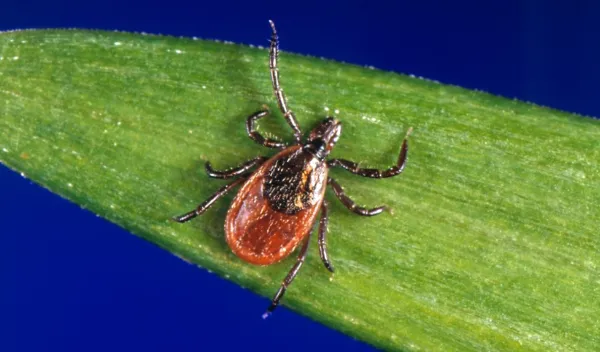
New grants support research on factors affecting infectious disease transmission
Headlines on COVID-19 and monkeypox underscore the importance of understanding infectious diseases and how they're transmitted. Scientists are studying these diseases, such as hand, foot and mouth disease and Lyme disease, to gain insights into how they evolve as they spread, and the social and economic effects that spread can cause.
Ten new grants awarded through the interagency Ecology and Evolution of Infectious Diseases program, or EEID, program — a partnership among the U.S. National Science Foundation, National Institutes of Health (NIH), the U.S. Department of Agriculture National Institute of Food and Agriculture (USDA-NIFA) and U.K. Research and Innovation (UKRI) — will support studies of these and other diseases.
The EEID program fosters interdisciplinary research on the ecological, evolutionary, physiological and social processes that drive infectious disease transmission. For example, research funded through EEID laid the groundwork for modeling used to understand and predict the initial spread of COVID-19 and has helped identify transmission patterns such as the 2013 identification of bats as the source of the 2002 SARS outbreak.
"The adaptation of the pathogen that causes COVID-19 into new strains with higher levels of transmission highlights the need to understand the role of evolution and other factors in disease transmission – for not only COVID-19 but for what could be the cause of the next epidemic or pandemic," said NSF Assistant Director for Biological Sciences Joanne Tornow. "These awards will help us understand diseases that have the potential to result in great harm to our economy, society and health."
Of the grants, five are funded by NSF, three by NIH and two by USDA-NIFA. Four of the projects include collaborations between researchers in the United States and the United Kingdom. The awards total $25 million in funding.
The grants will support research into topics such as how climate change impacts drivers of disease in marine life; how pathogen dynamics are linked across biological scales from the cellular to the ecosystem level; how human behavior and actions affect disease transmission between animals and humans, and within human populations; and how the interplay among the ecology, behavior and immunology of parasites impacts transmission.
Studies of these topics will be complemented by education and outreach efforts, including research experiences for high school teachers, mentoring opportunities for underserved K-12 students, partnerships and engagements with groups and schools in sub-Saharan Africa, and art-science collaborations with First Nations artists and science journalism students.
Learn more about the EEID program and view the full list of NSF EEID awards at nsf.gov.
